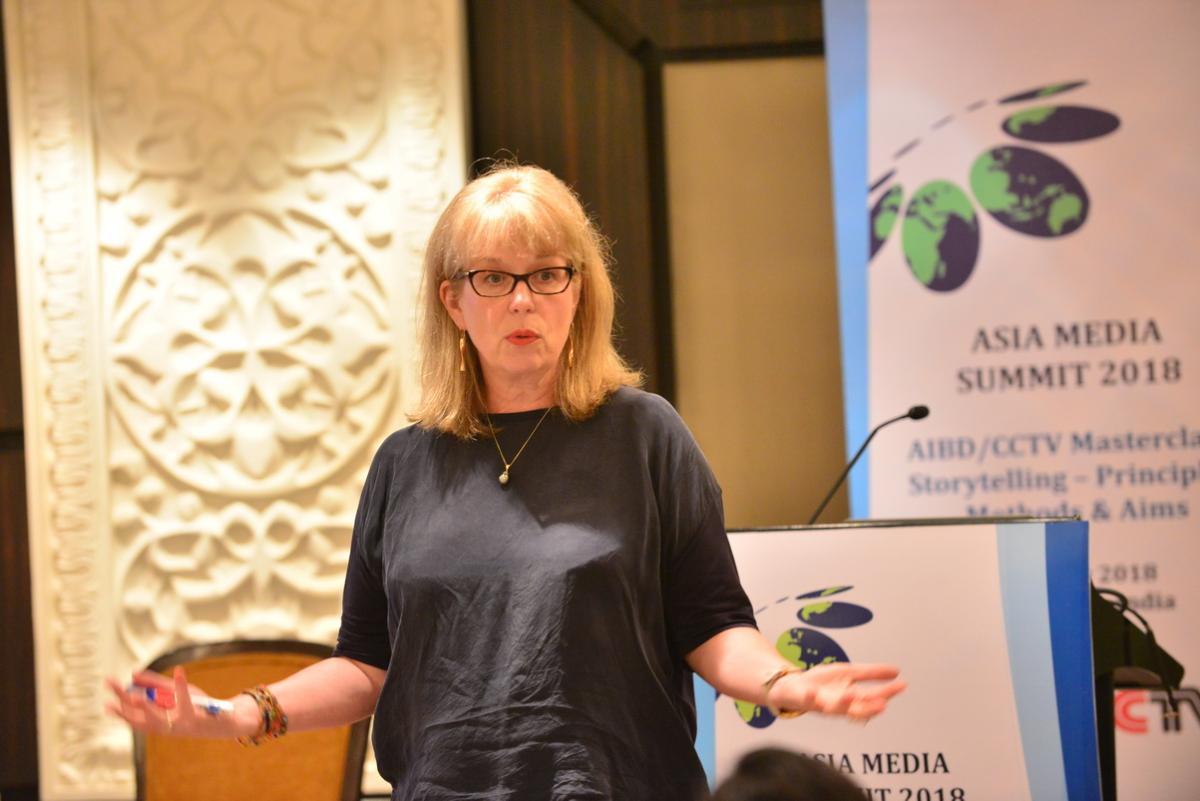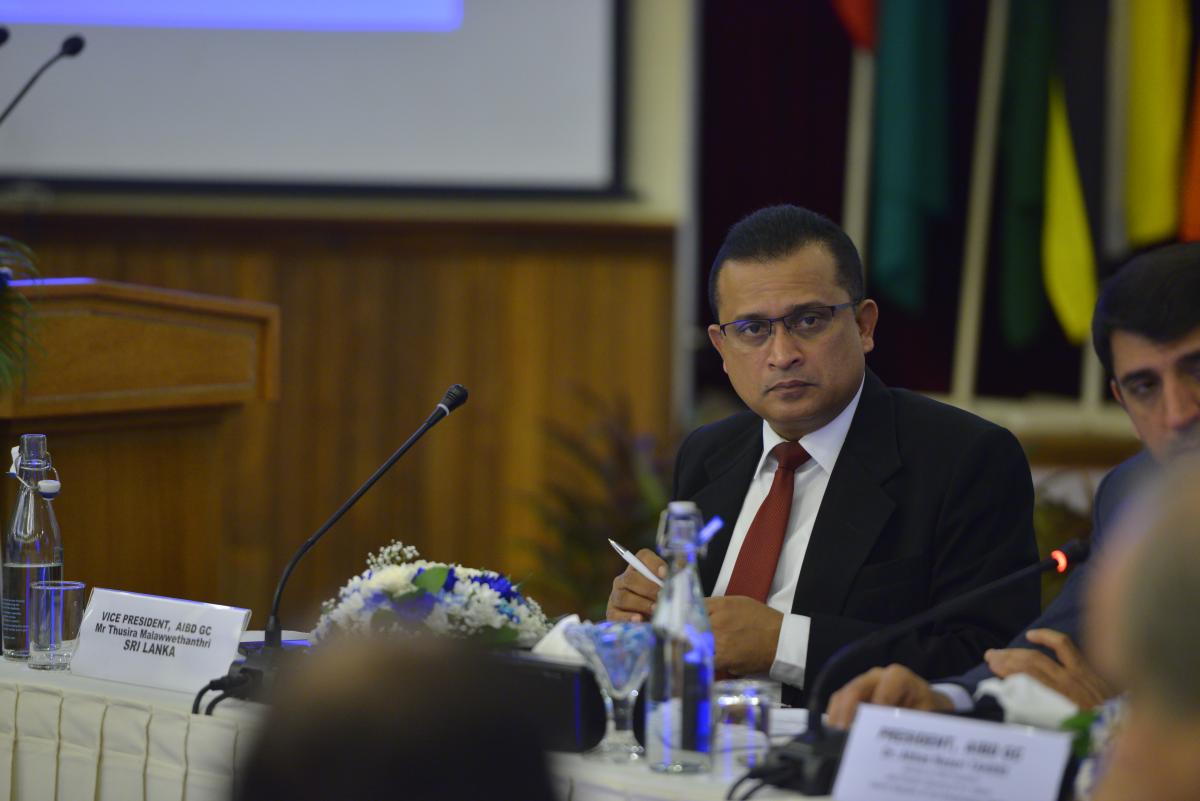Written by : Joe Ma. Carlos
Storytelling as an art may not follow any set principles to be able to draw people’s interest. If storytellers do, then their narratives will look alike and will be devoid of diversity.
“ Set principles will cripple variety of narration. But at the same time we have to accept that all narratives follow a scheme, pattern and style for ease of delivery, acceptance and understanding. We may call them loose principles,” according to Mr Abhaya Kumar Padhi, author and media trainer from India.
Mr Padhi offered this perspective during the AIBD/CCTV Masterclass on Storytelling, Principles, Methods and Aims as a pre-summit activity to the Asia Media Summit 2018 held in New Delhi from 8-9 May 2018.
In his presentation, he identified some of these ‘loose’ principles.
One is about the ‘willing suspension of disbelief’ by both the storyteller and the audience.
Two, decide whom, where and why to tell a story and who be the narrator. Is the narrator a stranger or a familiar person? A person familiar to the listeners is more credible and acceptable.
Three, stories are mostly told to friends. Strangers are not precluded from listening. After all we meet as strangers first and become friends later through the link of a story told.
Four, a story must have a location, a time, and a situation must be there.
Five, multisyllabic, erudite, pedagogic words are better avoided; they tend to over-intellectualise and philosophise. No qualifying is necessary. Otherwise, the story may turn into lessons on ethics and morality sermonised and delivered from a pulpit.
Six, bring in contrasting ideas, characters and situations, and juxtapose them by placing them together. Let them come into conflict and collide. In posing two opposing ideas, a whole new idea will be created.
Seven, stories are all about experience and idea. Reflect on that original idea captured your imagination. Pass it on to the listeners as if it were a flame with warmth and light.
Eight, All storytellers are vulnerable to doubts expressed by the audience. Dare to share their doubts and face them with candid emotion of your story. Be bold enough to ask your audience what you questioned along the way so they too share your doubt, confusion, anguish, anger, sorrow, joy, insight and delight.
And nine, be a part of the entire process but do not become a part of the story even if per chance it is about you. This may take away the credibility factor. Autobiographies may make good reading but they lack the imaginative character of fiction.
Mr Padhi also discussed the aims of storytelling, emphasizing that all stories or narrativesare shared as a means of entertainment, education, cultural preservation or instilling moraland ethical values.
“ Stories largely strive to establish an ethical human civilisation. The mundane, the profane, the celestial, the cosmic and the earthly – all narrated through stories are better understood and appreciated. The Greek principle of catharsis in drama comes into play equally in stories,” he said.
Disregard Fixing a Formula in Telling a Story
Written by : Joe Ma. Carlos Storytelling as an art may
Asia Media Summit – Telling our stories
Ministers of Information and Broadcasting from Bangladesh, Cambodia, India and
Telling Better Stories; Right Facts are not Enough
Journalism is basically storytelling, telling the right facts, but this
China Maldives Friendship Bridge – Telecast Link
China-Maldives Friendship Bridge officially titled Sinamale Bridge is now complete
Pre-Summit Workshop Clicks
Clicks from Pre-Summit workshops of Asia Media Summit 2018 get married
AIBD Recruits New Programme Managers
AIBD recently recruited new programme managers and tapped the services of the former Director General of the Korea Communications Commission under the Institute’s secondment programme as part of initiatives to strengthen its human resource capacity and better serve members.
EXBO Urges AIBD to Explore New Revenue Streams for Training
Members of the AIBD Executive Board (EXBO) gathered recently in Maldives to identify approaches to strengthen the Institute’s sustainability and improve delivery of services to members.
Members and Partners Forum: Importance of Right to Information and Digital Educational Content
Mr Thusira Chintaka Malawwe Thantri, Director General of the Sri Lanka Rupavahini Corporation, and Chairman of AIBD’s Strategic Plan Team, says the Right to Information Act which Sri Lanka recentlypassed signals the return of democracy in the country.
The 16th General Conference: Members Seek a More Relevant and Sustainable AIBD
Calls for more in-country training workshops and sustainability concerns dominated discussions among AIBD members who participated in the 43rd Annual Gathering/16th AIBD General Conference in Maldives.
Maldives’ VP Urges Media to Inspire Nations for a Better Society
Maldives Vice President Abdullah Jihadsays “media’s key role is not to depress and dishearten citizens, but to motivate, encourage and inspire nations” in order to pave the way for future generations and build a better society.




